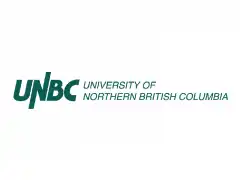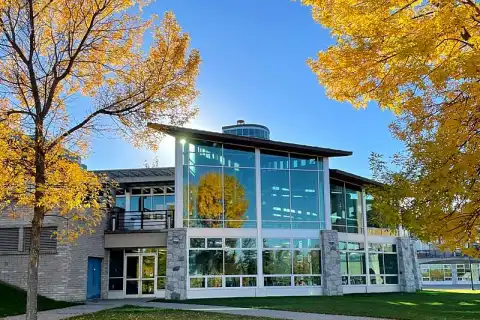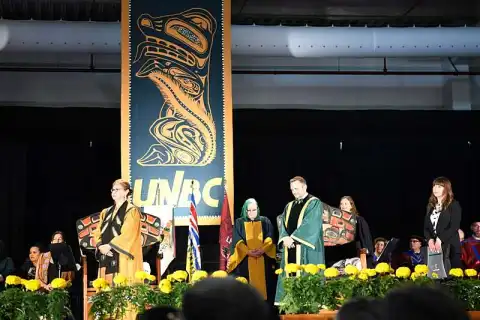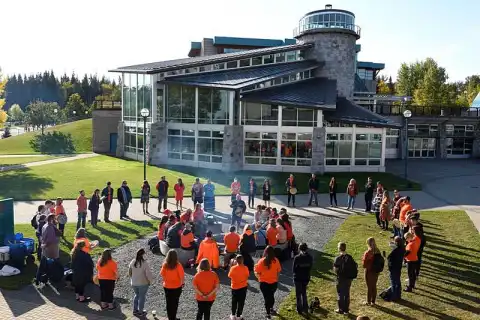Bachelor of Education - Secondary
- 1,5 years
- Duration
- 26,750 CAD
- Price
- September
- Start
- June
- Deadline
- Bachelor
- Degree
- Campus
- Format
- Prince George / Canada
- Location
Program description
The Secondary Years stream trains people to instruct students in grades 8 through 12 in specialized subjects.
Those who are accepted into the Secondary Years stream become part of a cohort of teacher candidates who often start and finish their programs together.
Program structure
Year 1 Courses
- Inclusive Education: Success for All
- Aboriginal and Indigenous Education
- Curriculum and Instruction Secondary Humanities Part 12
- Curriculum and Instruction Mathematics and Science Part 12
- Curriculum and Instruction Secondary Humanities Part 22
- Curriculum and Instruction Mathematics and Science Part 22
- Observational Practicum
- Experiential Practicum
- Foundations of Education
- Pedagogy, Curriculum and Teaching - Theory in Context
- Integrating ADST as a Pedagogical Stance (SY)
- Career Education
- Diverse Classrooms
- Mental Health and Wellness
- Reflective Practice Through Inquiry and e-Portfolio1
- Assessment and Motivation
- Innovative Community-Based Approaches to Responsive Education (SY)
- Aboriginal and Indigenous Education: Epistemology1
- Formative Practicum
Year 2 Courses
- Reflective Practice Through Inquiry and e-Portfolio1
- Aboriginal and Indigenous Education: Epistemology1
- Summative Practicum
Price
- Tuition* 26,750 CAD
- Student Fees* 1,315 CAD
- Books* 1,400 CAD
*Tuition, fees and books are subject to change and vary among programs.
Requirements for applicants
The BEd Secondary Years track requires a four-year (120-credit-hour) Bachelor's degree from an authorized post-secondary school.
Also required:
- A 2.33 (C+) GPA in the last 60 transferrable post-secondary credits;
- Six credit hours of English Literature or English Composition with a C+ average (creative, business, or technical writing or communication courses are not allowed);
- Three math credits (excluding statistics);
- Three lab science credits. Labs are optional but suggested. Laboratory Science credit hours usually come from Astronomy, Biology, Chemistry, Earth and Environmental Science, Physical Geography, or Physics. Credit hours from different fields may complete the Laboratory Science requirement after evaluation;
- Three Canadian Studies credits. Canadian Studies credit hours usually come from Anthropology, English Literature, First Nations Studies, Geography, History, Northern Studies, or Political Science courses with considerable Canadian content. Credit hours from different subjects may complete the Canadian Studies requirement after evaluation;
- Twenty-four credit hours of academic education in any of the following teachable disciplines taught in British Columbia public schools (Biology, Chemistry, CS, Geoscience, English, Indigenous Studies, Science1, Geography, Past, Math, Physics, Sociology2);
- Completed application forms, including the Experience with Children and Youth statement, three Confidential Reference Forms, and Personal Statement.
About the university

One of Canada's top universities, UNBC is situated in the breathtaking scenery of northern British Columbia.
Excellent undergraduate and graduate learning opportunities are offered by UNBC in the areas of cultures, economics, health, sciences, and the environment. We share the exhilaration of new knowledge with our students and the results of our teaching and research with the world as one of British Columbia's research-intensive institutions. UNBC is a welcome place with a warm, inclusive, and supportive learning environment in addition to cultivating and celebrating academic excellence.
The University of the North by and for the North is UNBC. Our students, alumni, teachers, staff, and the communities we serve all feel a strong sense of ownership, purpose, and adventure as a result of our goal. We are also Canada's Green UniversityTM, paving the road for everyone's future to be more sustainable.
Vision
To affect people's lives and communities in the North and around the world while being Canada's top destination university in terms of personal character.
Mission
To have an impact on the world today and inspire future leaders.
UNBC's Academic Structure
- Faculty of Environment
- Faculty of Business and Economics
- Faculty of Human and Health Sciences
- Faculty of Indigenous Studies, Social Sciences and Humanities
- Faculty of Science and Engineering
- Division of Medical Sciences
Read more about University of Northern British Columbia, Canada





